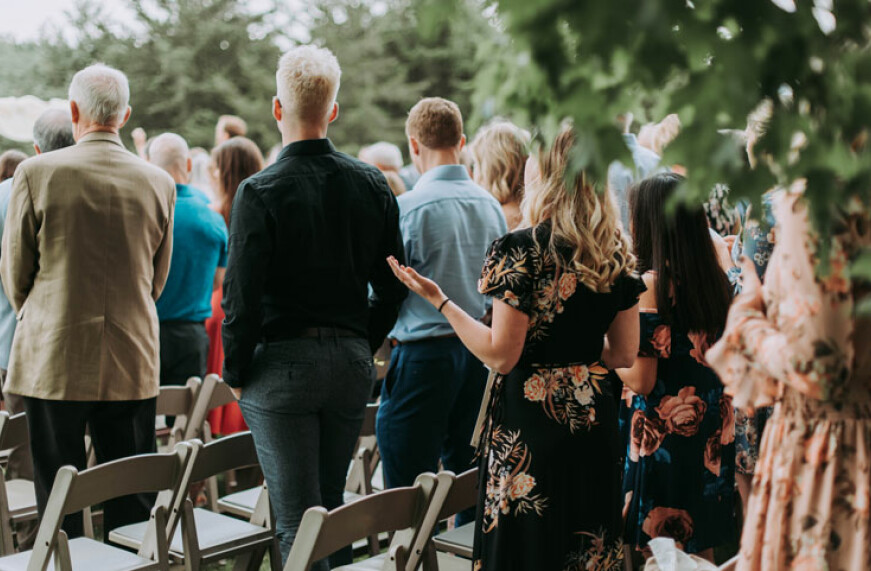A Wedding Charge to the Congregation

We are in the middle of an unplanned for convergence of marriage foci between our studies in Ephesians and the life of the church. Last Sunday in Ephesians 5 we looked at the ugliness of sexual immorality against the backdrop of the beauty of the love of Christ the Bridegroom for his bride. Next Sunday we will look more closely at the connections Paul draws in some specific teaching on marriage again from Ephesians 5, and we will start an Adult Institute class targeted at talking about marriage in community. Finally, today, as many of you know, Sarah Griffoen and Colin Helder will be married at Christ Church.
In this marital convergence, one of the questions that I have been wrestling with is, "What does it mean for us as a community of God's people to embrace one another on our journeys?"
Marriage, as the scriptures lay out, paints us a picture of how Christ relates to his people, his Church. He marries them. He is the great Bridegroom, we, the church are his bride. Eternity, where there is neither marrying or giving in marriage to one another because we are all in union with Christ, is taken up with the wedding feast of the Lamb. We spend eternity with Christ as our Bridegroom-Head knowing purity, and intimacy, and joy. Jonathan Edwards put it like this: The creation of the world seems to have been especially for this end, that the eternal son of God might obtain a spouse towards whom he might fully exercise the infinite benevolence of his nature, and to whom he might , as it were, open and air forth all that immense fountain of condescension, love, and grace that was in his heart.
But this is precisely why marriage overall and our marriages specifically cannot be for us alone, nor can we think of going it alone along the way. Author Lauren Winner puts it this way, “Marriage is a gift God gives the church. He does not simply give it to the married people of the church, but to the whole church, just as marriage is designed not only for the benefit of the married couple. It is designed to tell a story to the entire church, a story about God’s own love and fidelity to us.”
So what does this mean practically? First, this means that all married people in the church are charged with telling the story of Christ and his church through their marriages. One writer put it this way, "marriage consists not simply or even primarily of a personal relationship. Rather, it crystallizes the love of the larger church community. The couple is not just two-in-one, but two together within the whole, with specific responsibility for the whole. ...They must persevere in love, because the community needs to see God’s love actualized among God’s people.” That is an incredibly tall order. How are we going to do this as sinful, flawed people?
One of the answers to that question is, and this is every wedding's charge to the congregation, we must help each other. At the most practical level, it is our friends, our brothers and sisters in the church, our aunts and uncles and colleagues, who can remind us why we got married in the first place. It is this community that, when we lay our marriages bare before them with all their attendant strengths and struggles, are able to hold us accountable, and also celebrate with us. When we open our marriages up to our friends’ support, prayers, questions, and rebuke we open ourselves to the very resources God has placed in His world to help us tell His story to one another. This is why many older wedding liturgies prompt the pastor to ask the congregation if “all of you witnessing these promises [will] do all in your power to uphold these two persons in their marriage?” To which the congregation responds with a hearty “We will.” We need each other. Daily. Will we risk it? Will we be there for one another?
Photo by Samantha Gades on Unsplash


